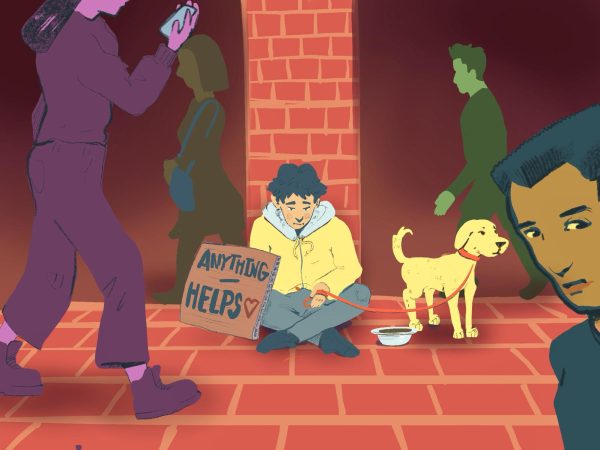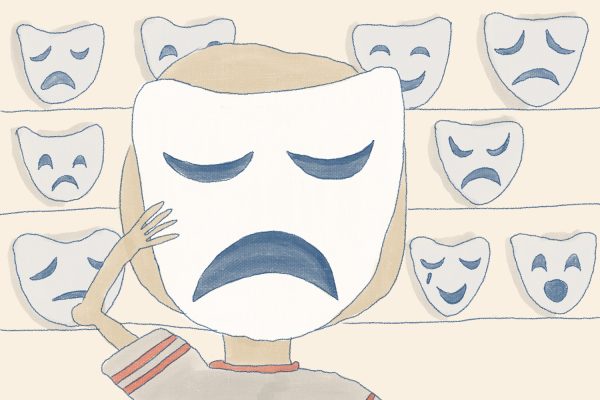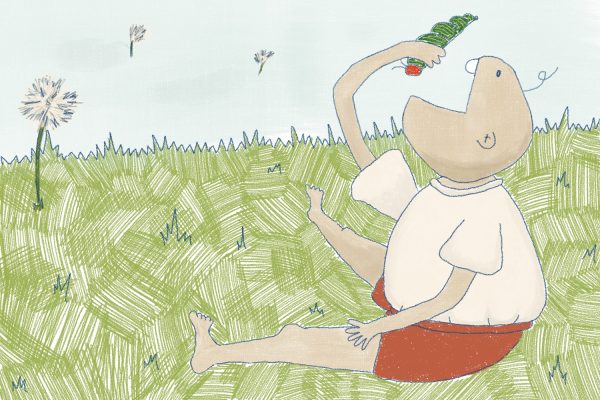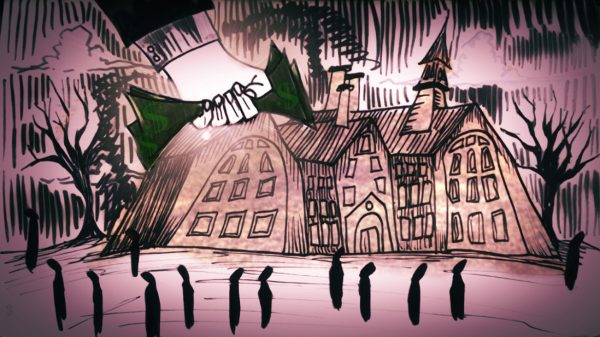Inside a cadet training academy
September 30, 2020
In high school, I watched too many crime shows and decided I wanted to be an FBI Agent.
My school resource officer sent me to the New Hampshire Police Cadet Training Academy, a program for students interested in law enforcement. I should’ve stayed home.
What I thought would be an informative “camp”, was actually eight days of boot camp. We marched to classes in drill formation, sat silent at dinner and faced punishments for things like not removing your hat fast enough when walking through a doorway.
It was enough to make me give up on being the next Olivia Benson.
I’ve spent a lot of time wondering about the effects of that training on police officers. And since I tend to be one for dramatics, I contacted two police officers from my hometown to find out.
Officer Heather Blase is the resource officer at Souhegan High School. She trained at Citizen’s Police Academy in Concord, NH, after being hired by Amherst Police Department.
That’s how getting a policing job works. You graduate college, or high school, apply to a few departments, and then whoever hires you sends you to the academy, free of charge. It makes law enforcement an attractive job for individuals without a college degree, or of lower income.
At the academy, much of the cadet’s time is spent studying in class. They start firearm training around the third week of training; target practice, shooting at night, and shoot-don’t shoot drills. They run driving simulations, practice how to break apart a domestic, and how to administer a breathalyzer test.
At the end of sixteen weeks, they’re released to their department, where they spend the next few weeks in “field training” with a senior officer who shows them the ropes until they’re ready to patrol alone.
Not all police officers are trained the same. Detective John Smith works for Amherst Police Department in NH. He is the one responsible for feeding me to the wolves in blue at the training academy.
He trained in North Carolina, at the Western Piedmont Community College taking a class called “Basic Law Enforcement Training”. His training looked much different than Heather’s.
While Blase attended a Monday-Friday residential “camp”, Smith went to class for eight hours, took a lunch break, and went home at night. While Blase had to train at 5 am, Smith didn’t even have to pass a PT test. And while Blase spent every day being screamed at, Smith says the most stress he experienced was academic related.
I ask John if he thinks his relaxed training makes him any different of a police officer than someone like Heather with her militarized training.
“I don’t think it makes me any better or worse,” He tells me, “The more rigid academy creates more of a comradery with all the officers in the state because they’ve all been through this rough experience together. I didn’t really have that.”
That rigid academy accomplishes more than comradery. Cadets have to earn their right to talk to one another, which teaches discipline. What Smith calls “mind games” (i.e. ripping your sheets off your bed if you don’t make them correctly) prepares cadets for the jarring life of a police officer.
“Even with the mental and physical exhaustion, you still have to be on top of your game,” Blase explains, “It was just a simulation of what we would be up against.”
Those mental games are used to teach the same mindset: complacency kills. They drove that part home a lot in the eight day program.
“You need to stay alert,” they screamed at us after dragging us out of bed at midnight to make us do wall sits in the hallway, “Or you’ll get yourself killed.”
Then they’d return to the “protect and serve” mantra. It got to a point where I had to wonder: are we protecting and serving our community? Or ourselves.
I asked John and Heather their thoughts on my hypothesis, but neither of them shared those feelings. Maybe they know what I’m getting at. Or maybe they’re just good people who are able to differentiate between the two.
We’re familiar, of course, with the police officers who can’t. They’re the kind of people who joined the police system to intimidate and belittle. They abuse a power they didn’t earn, and cower behind a badge they never deserved to wear. They’re the kind of people who shoot first and ask questions later, and view others’ lives as disposable.
It’s the kind of mentality that turned Tamir Rice’s toy gun into a lethal weapon, and Breonna Taylor’s sleeping body into a looming danger.
If black men and women are already criminalized, and police officers are already paranoid, there’s no hope for justice in our criminal justice system.
It’s impossible to wake up one day and banish racism from the country.
It’s easier to look for other, changeable factors, like police training. It’s ridiculous that a hairdresser’s training takes longer than a police officer’s. It’s bizarre that certain states have different methods of training our peace keepers. And it’s abysmal for police officers not to be held to the standards of the laws they’re supposed to be enforcing.
Before I hang up, I ask Heather her advice for an aspiring police officer before they start training.
“Make sure you really want to be a police officer,” She says, after a pause, “You can make a difference, you just have to know who you are.”
















![Can’t buy me [self] love](https://vtcynic.com/wp-content/uploads/2024/04/self-care-FINAL-600x398.jpg)
